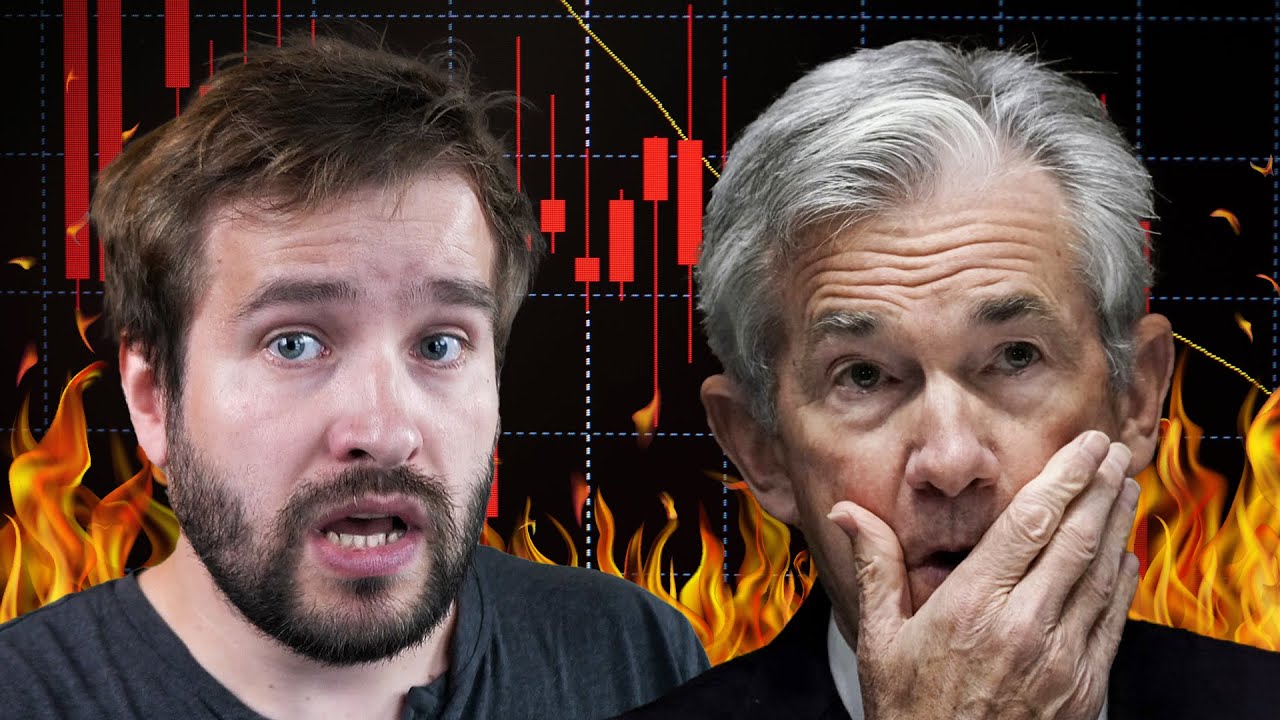The Stock Market Will Collapse Next Week
Unleash Your Creative Genius with MuseMind: Your AI-Powered Content Creation Copilot. Try now! 🚀
Introduction: A Blast from the Past
Hey guys, it's Sasha! Let's take a trip back in time to March 1980. Inflation was skyrocketing, the world was on the brink of a recession, and the stock market was in decline. Sound familiar? Well, buckle up because the similarities between then and now are eerily striking.
The Battle of Inflation: Two Sides of the Coin
Back in 1980, there were two schools of thought on the causes of inflation. Some argued that it was a temporary issue caused by the energy crisis, geopolitical tensions, and supply chain disruptions. They believed that as these issues resolved, inflation would naturally decrease. On the other hand, there were those who saw inflation as a self-fueling spiral. They believed that the rising cost of living was putting immense pressure on employees, leading to higher wages. These increasing wages, in turn, drove up the cost of goods and services, creating a vicious cycle of inflation.
The Fed's Rollercoaster Ride
Amidst this uncertainty, the Federal Reserve (Fed) was caught in a whirlwind of decisions. As inflation soared past the 10% mark, the Fed initially raised interest rates, hoping to curb inflation. The rates shot up from 10% to 20% in just five months. Surprisingly, this sudden shock to the system halted the growth of inflation, capping it out at 14.8% in March 1980.
However, the relief was short-lived. In October 1980, inflation started creeping up again, defying expectations that the underlying causes would resolve themselves. The Fed's chairman at the time, Paul Volcker, had to take drastic action and increase rates once more, bringing them back to the 20% level. This time, it worked. Basic economic principles kicked in - high interest rates made borrowing expensive and incentivized saving, which reduced demand and brought down inflation.
The Stock Market's Wild Ride
But what about the stock market? Interestingly, it didn't follow the traditional narrative. In March 1980, when fear and uncertainty loomed large, the stock market experienced a massive drop in just two weeks. However, as the Fed took more decisive action and seemed to be in control, the stock market rallied. It gained a staggering 40% from March to November 1980, despite the deepening recession. On the flip side, when uncertainty returned and it appeared that the Fed had made a mistake in lowering rates too early, the market tanked. Yet, as inflation came under control, the stock market surged again, gaining 60% in just nine months from July 1982.
Lessons for Today: Will History Repeat Itself?
Now, let's fast forward to the present. Inflation is once again making headlines, and the Fed is grappling with tough decisions. The question is, have we learned the right lesson from history? Some argue that the root causes of inflation, such as energy prices and supply chain disruptions, are resolving themselves, and therefore, inflation will naturally subside. However, a deeper look reveals that basic living costs, like food and shelter, are increasing at record levels, putting immense pressure on people's wallets.
Critics claim that the Fed is underestimating the severity of the situation. Inflation is already at 8.3%, significantly higher than the current interest rate. The recent increase in rates, coupled with the Fed's revised estimates for next year, suggests they are finally waking up to the reality of the situation. However, the narrow consensus among committee members raises questions about the robustness of their decision-making process.
The Great Unknown: What Lies Ahead?
As uncertainty prevails, the stock market has reacted negatively, and many analysts predict a deepening crash. Yet, history has shown us that the stock market can behave in unexpected ways. If inflation slows down in the coming quarters as the Fed continues to raise rates and implement quantitative tightening, and if the market gains confidence that inflation will eventually be controlled, could we see a surprising bull run?
It's an intriguing question that challenges the prevailing doom and gloom narrative. While analysts and YouTubers are certain of an impending crash, could we witness a 40% or 60% surge in the stock market within a year, despite high inflation and a looming recession? Only time will tell.
Conclusion: Buckle Up for the Ride
In the rollercoaster of inflation and uncertainty, one thing is clear - we are living in unprecedented times. While history can provide valuable lessons, we must also acknowledge the differences between then and now. The Fed's actions and the market's reactions are not set in stone.
So, strap yourself in and brace for the ride. The future remains uncertain, but with a dash of optimism and a sprinkle of creative thinking, we can navigate these turbulent times. Who knows, we

Related Recaps
- 🔴 APRESENTAÇÃO de Jorge Sampaoli no Flamento: técnico argentino fala sobre Gerson, Vidal e Gabigol
- Deux Sessions : la Chine va restructurer son ministère des Sciences et des Technologies
- ölü bekletilmez dediler
- Have A Good Day Ahead meaning in Hindi | Have A Good Day Ahead ka matlab kya hota hai ❓ ✔️ 👍
- Jets' Mark Scheifele Drops The Gloves with Panthers' Matthew Tkachuk After Taking Hip Check